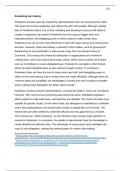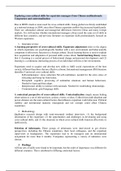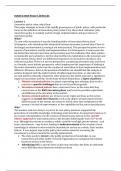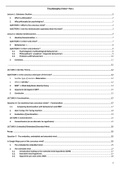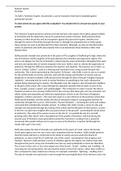Evaluating law making
Parliament ensures laws are created by representatives who are elected by the public.
This gives the process legitimacy and reflects the will of the people. Although making
laws in Parliament takes a lot of time. Debating and deciding on every small detail of
complex regulations can prevent Parliament from focusing on bigger and more
important policies. By delegating power to other bodies to make certain laws,
Parliament can use its time more effectively to deal with major issues and overall policy
direction. However, when law-making is passed to other bodies, such as government
departments or local authorities, it takes power away from the elected House of
Commons. This means that unelected individuals or organizations are involved in
creating laws, which can reduce democratic control. While some controls are in place,
such as committees to review delegated laws, Parliament’s oversight is often limited,
which can allow important laws to pass without enough scrutiny. In conclusion,
Parliament does not have the time to make every law itself, and delegating power to
others is the most practical way to ensure laws are made efficiently. Although there are
concerns about accountability, the advantages of saving time and focusing on broader
1
policy-making make delegation the better option overall.
Parliament involves elected representatives, ensuring the public’s views are considered.
However, MPs cannot know everything about technical areas. Delegated legislation
allows experts to help make laws, ensuring they are detailed. This makes the laws more
suitable for specific issues. On the other hand, sub-delegation is identified as a problem,
where law-making powers are passed down further to people like civil servants. This
means laws are often written by unelected officials and only approved by a minister.
This is known as “rubber-stamping,” as the decisions may not get proper attention or
review by Parliament. In conclusion, the people in departments have the knowledge to
create detailed and effective laws. The advantage of using expert input outweighs the
2
issue of sub-delegation, making this method better for modern law-making.
1
https://www.gov.uk/guidance/legislative-process-taking-a-bill-through-
parliament#:~:text=A%20bill%20is%20a%20proposed,is%20known%20as%20an%20act.
2
https://www.canterbury.ac.nz/about-uc/our-structure/leadership-and-governance/
delegations-of-authority/sub-delegation#:~:text=Sub%2Ddelegation%20is%20a
%20transfer,the%20use%20of%20that%20authority.

